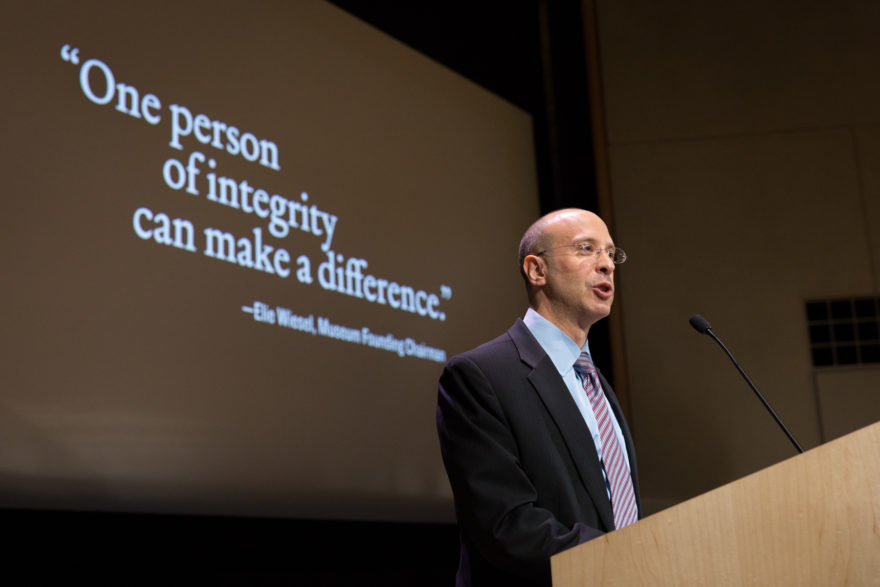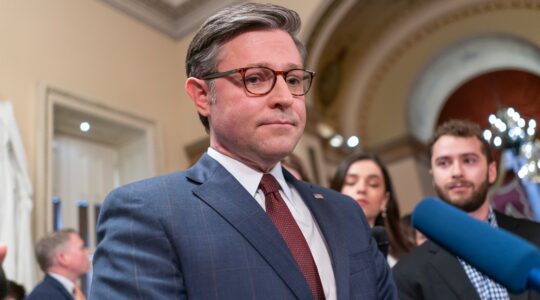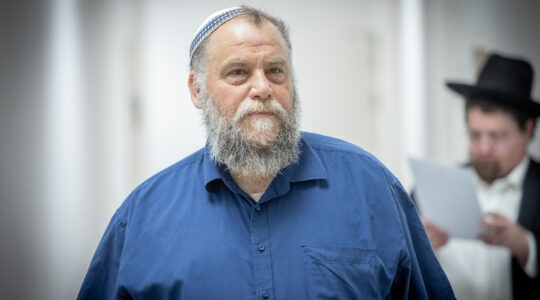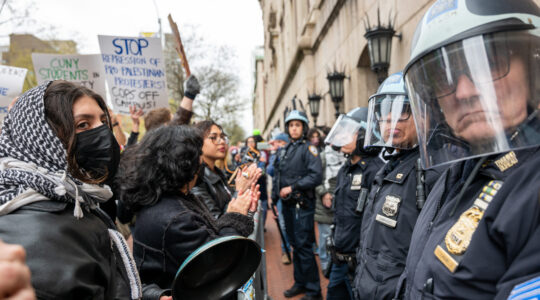WASHINGTON (JTA) — The son of the late Nobel laureate Elie Wiesel son excoriated the rhetoric and policies associated with President-elect Donald Trump, but also cautioned Americans to respect each other however deep the political divide.
“He believed strongly in the role of this museum and broadcasting the dangers of viewing the other with distrust and suspicion,” Elisha Wiesel said Wednesday evening at a memorial service for his father, a Holocaust survivor, held at the U.S. Holocaust Memorial Museum.
“Here is what we are commanded to do over and over and over again,” the younger Wiesel, quoting from Exodus and other biblical passages: “And a stranger shalt thou not wrong, neither shall you oppress him, for you were strangers in the land of Egypt. A stranger you shall not oppress for you know the heart of a stranger. You were strangers in the land of Egypt. The stranger that travels with you shall be unto you as the home-born among you and you shall love him as yourself, for you were strangers in the land of Egypt.”
“Is that clear enough?” Wiesel thundered after completing the passage, and then — without naming Trump — specified classes of people Trump has derided or dismissed throughout his presidential campaign, including Syrian refugees, Muslims, undocumented immigrants, women and African American activists.
Wiesel then added to the list of entities needing protection two classes Trump did not generally assail: the LGBT community and Israel, which Wiesel said is “treated as the world villain simply for making sure that Jews will never again be without a home.”
“In this museum, whose fundamental premise is that we must never again allow ourselves to condemn ‘the other’ simply for being ‘the other,’ is there any question about the scope of the work ahead for all of us in the coming years?” he said.
The younger Wiesel said that his father would not have isolated those with whom he disagreed and pleaded for an end to the post-election rancor between supporters and opponents of Trump.
“In seeking to change hearts and minds and create a more tolerant society, there is a danger we may treat those opinions we find offensive as ‘the other’ in turn,” he said. “This was not my father’s way. He was not a shouter. And he did not belittle those he disagreed with. He spoke to them. He listened.”
He concluded: “I do not think he would unfriend people on Facebook no matter how they voted.”
The theme of a crisis of political differences threaded throughout the memorial service. Sen. Orrin Hatch, R-Utah, recalled Wiesel as someone who “ taught us to celebrate our collective strength and channel our commonalities to fight the waves of prejudice that really leap at our shores.”
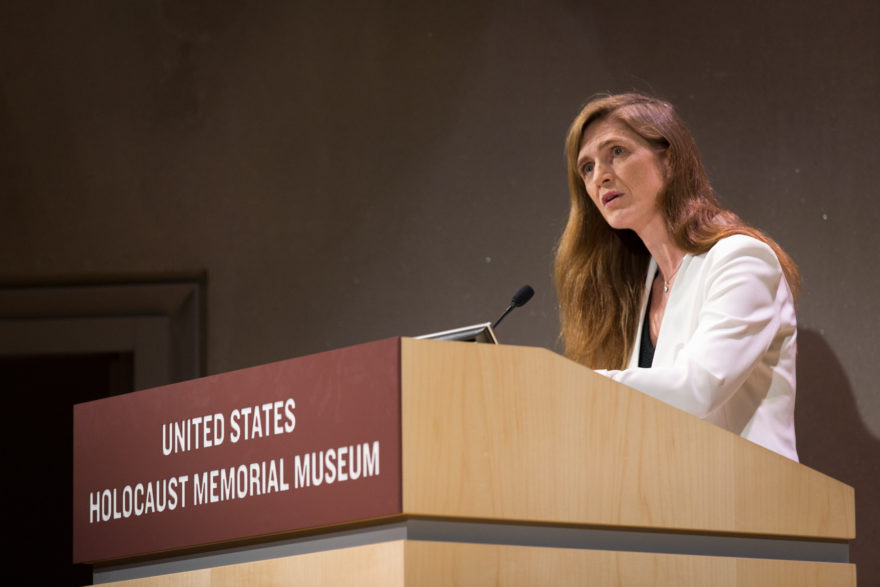
Samantha Power, the U.S. ambassador to the United Nations, speaking at the Elie Wiesel memorial, Nov. 30, 2016. (Courtesy of the U.S. Holocaust Memorial Museum)
Samantha Power, the Obama administration’s ambassador to the United Nations and, like Wiesel, a writer on genocide, said she was grateful that “as our nation goes through difficult days,” Wiesel’s book “Night,” his account of his internment at the Nazi camps Auschwitz and Buchenwald, “is a book that is firmly ingrained in that small canon of literature that kids and adults read.”
“Along with Atticus Finch and Scout,” she said, naming the heroes of “To Kill a Mockingbird,” a book that helped drive awareness of racism in the South, “one of the narrators that will have a shot at shaping our children’s narratives is a 16-year-old Elie.” She choked back tears. “They will be less alone for having Elie with them.”
Ron Dermer, Israel’s ambassador to Washington, described Wiesel’s courage in being the “great rebuker of our time” and who was unafraid to confront the powerful.
He noted that Wiesel, in inaugurating the museum in 1993, departed from his prepared remarks to berate then-President Bill Clinton for doing nothing to stop the massacres in the collapsing Yugoslavia, and that in 1985, he pleaded with President Ronald Reagan not to visit Bitburg, a German military cemetery where members of the notorious Nazi SS unit were buried.
Dermer added to that list Wiesel’s attendance in March of 2015 at Israeli Prime Minister Benjamin Netanyahu’s speech to Congress decrying President Obama’s Iran policies.
“Elie Wiesel sat in the gallery of Congress to listen to the prime minister of the one and only Jewish state speak about a threat to the survival of Israel,” Dermer said. “Sometimes people listened to Elie. Sometimes people didn’t.”
